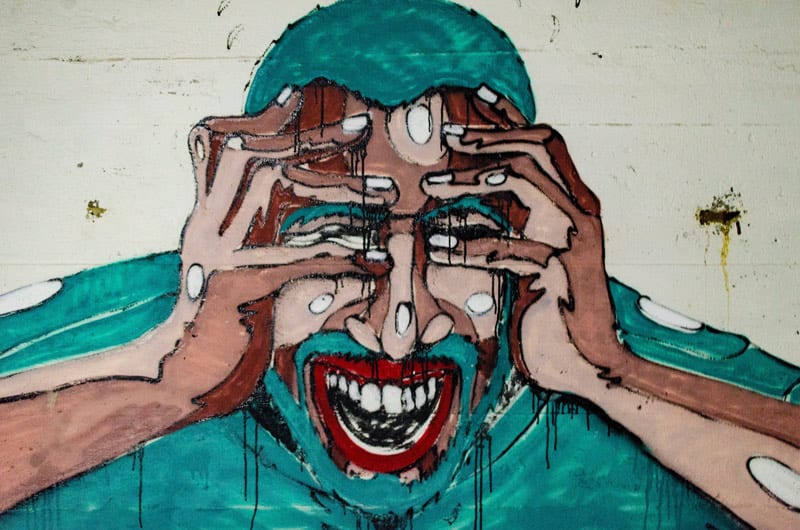There is a close relationship between migraines and the mental health issues of anxiety and depression. This relationship is expressed as comorbidity, and there is a definite increase in the development of anxiety and depression by migraineurs when compared to the general population.
This article provides an overview of both mental health conditions and migraines, including their types and symptoms. We will also take a look at how scientists believe they are linked and some treatment options.
Overview: Migraines, Anxiety, and Depression
In 2015, the Journal of Neuroscience published a definition of a migraine:
Migraine: a common, multifactorial, disabling, recurrent, hereditary neurovascular headache disorder. 1
Clearly, migraines are much more than headaches. They are debilitating and can steal hours or days of productivity and comfort from those who suffer from them. As many as 12% or more adults in the U.S. have migraines.2 Three times as many women are affected as men.3
It has been found that migraineurs are two to five times more likely to be diagnosed with depression or anxiety, no matter their age or gender. People experiencing migraines have three times higher risk of developing depression than those who do not. Conversely, people diagnosed with depressive disorders are at three times higher risk of developing migraines than those without depression.
According to Dawn Buse, Ph.D., Director of Behavioral Medicine at the Montefiore Headache Center, about 20% of those with episodic migraine or migraines occurring 14 or fewer days per month, may develop depression or anxiety. About one-third to one-half of those suffering chronic migraines may develop anxiety. 4
Anxiety: Types and Symptoms
The most common mental health disorders are anxiety disorders. Of those suffering migraines, 50% to 60% will develop anxiety.5
- Generalized Anxiety Disorder (GAD) – The excessive, persistent, unrealistic worry about everyday things.6
- In generalized anxiety disorder, patients cannot control their constant worry about events that may never happen or expect the worst outcome in any situation. They suffer fatigue, difficulty concentrating, and tense muscles. Occasionally, they develop phobias.
- Panic disorder – The recurrence of unexpected feelings of intense fear or terror, which has no discernible trigger.
- In panic disorder, the patient may suffer a rapid heart rate, difficulty breathing, sweating, and a fear of dying or losing control. Duration is shorter but more intense than GAD.
GAD is the typical anxiety disorder found with migraines. During a migraine attack, anxiety often centers on worries directly related to the attack, such as wondering how long it will last, when the medication will start to work, or getting work done. Anxiety about the future is also present, such as worrying about the ability to maintain a job.
Even when a migraine is not present, the patient may feel anxiety about when one may occur and whether it will disrupt plans. Around half of migraineurs develop an anxiety disorder.7
Depression: The Symptoms
About one-quarter of migraineurs have depression.8 Many symptoms of depression echo those of anxiety and migraine: sleep and concentration difficulties, changes in appetite, and low energy. People suffering from depression also experience sadness, hopelessness, fatigue, and loss of interest or pleasure in things enjoyed previously.9 These feelings can last two or more weeks.
Migraines: Types and Symptoms
Migraines may be episodic occurring sporadically 14 or fewer days a month. Other patients suffer from chronic migraines, which occur 15 or more days a month.
A migraine is not a simple headache. Migraines cause severe head pain on one or both sides of the head and can be accompanied by visual disturbances, nausea, and vomiting. A migraine can last for hours or days before the patient recovers enough to function.
Typical headache medications do little to relieve the pain, so many migraineurs depend on prescription medication and/or non-medical interventions. Often the patient must use more than one remedy together for relief.
However, if the depression or anxiety is not addressed, migraine medication and other remedies may fail to have any impact.
Hypothesis of the Link between Migraines and Anxiety/Depression
Unfortunately, no single link has been found between migraines, anxiety, and depression.10
- One commonality is the brain chemical serotonin.
- Fluctuations in female hormones have been associated with migraines and depression, particularly during falling estrogen levels.
- There may be a genetic or environmental factor that makes someone more likely to have migraines and depression or anxiety than others.
- There is a potential association with a dopamine D2 receptor genotype that is common to migraine with aura, major depressive disorder (MDD), and generalized anxiety disorder (GAD).
- Serotonin receptors, transporters, and catecholamines have been implicated as well.
Some studies suggest a link between migraine with depression or anxiety and an atypical function or structure of the brain. Specific structures include the limbic system, salience network, and default mode network, so stronger functional activation and connectivity may explain the relationship between migraine and psychiatric conditions.
Treatment Options
Since serotonin is a commonality between migraine, depression, and anxiety, treatment with a selective serotonin reuptake inhibitor (SSRI) or selective norepinephrine reuptake inhibitor (SNRI) classes of antidepressants have been effective in preventing migraine. SSRIs and SNRIs are effective for both depression and anxiety; however, only venlafaxine has Grade B evidence of the efficacy of migraine prevention.
Tricyclic antidepressants (TCAs) such as amitriptyline are effective at lower doses for migraine prevention, thereby lowering the side effect, but TCAs are only effective at higher doses for depression and thus have more side effects.
Cognitive behavioral therapy in concert with medication shows promise in preventing comorbid migraine and depression or anxiety, or in reducing the severity or length of the migraine attack. Biofeedback and relaxation techniques have also been shown to alleviate stress that can exacerbate all three conditions.
Maintaining an active lifestyle and a consistent sleep schedule is helpful for anyone with a mood disorder or migraines. Antidepressants should be used in conjunction with migraine medications to improve the outcome for all conditions. 11
Living with Migraines and Anxiety or Depression
The secret for living with migraines, anxiety, and depression is to continue to live one’s life. Patients who make plans and keep them avoid the isolation so common to those with chronic illness. Sufferers may have to cancel, leave early, or move to a darkened room for a time, disrupting plans, but this should not keep them from going ahead with activities as often as possible.
A second tip is for patients to realize it is not their fault that they have migraines or a psychological condition. They are not alone; many suffer one or more problems. Improving the quality of life and the judicious use of proper medication and other remedies can help them have the best life possible.
If you or someone you know experiences mental health issues, it is important to seek help from a qualified professional. Our Resource Specialist can help you find expert mental health resources to recover in your community. Contact us now for more information on this free service to our users.

Resources:
- Burstein R, Noseda R, Borsook D. Migraine: multiple processes, complex pathophysiology https://www.ncbi.nlm.nih.gov/pmc/articles/PMC4412887/. J Neurosci. 2015;35(17):6619-6629. Retrieved January 18, 2019.
- Lipton RB, Bigal ME, Diamond M, et al. Migraine prevalence, disease burden, and the need for preventive therapy http://n.neurology.org/content/68/5/343.long. Neurology. 2007;68:343-349.
- Weitzel KW, Strickland JM, Smith KM, Goode JR. Gender-specific issues in the treatment of migraine https://www.ncbi.nlm.nih.gov/pubmed/?term=Gender-specific+issues+in+the+treatment+of+migraine. J Gend Specif Med. 2001;4:64-74. Retrieved January 18, 2019.
- Buse, D. The Link Between Migraine, Depression, and Anxiety. American Migraine Foundation. Retrieved January 17, 2019, from https://americanmigrainefoundation.org/resource-library/link-between-migraine-depression-anxiety/. Retrieved January 18, 2019.
- Smitherman, T. & Baskin, S. Depression and Anxiety in Migraine Patients. American Migraine Foundation. Retrieved January 17, 2019, from https://americanmigrainefoundation.org/resource-library/depression-and-anxiety-in-migraine-patients/.
- Anxiety and Depression Association of America. (n.d.) Understanding GAD and the Symptoms.Retrieved January 18, 2019, from https://adaa.org/understanding-anxiety/generalized-anxiety-disorder-gad
- Smitherman, T. & Baskin, S. Depression and Anxiety in Migraine Patients. American Migraine Foundation. Retrieved January 18, 2019, from https://americanmigrainefoundation.org/resource-library/depression-and-anxiety-in-migraine-patients/.
- https://americanmigrainefoundation.org/resource-library/depression-and-anxiety-in-migraine-patients/.
- American Migraine Foundation. (n.d.) The Link Between Migraine, Depression, and Anxiety. Retrieved January 17, 2019, from https://americanmigrainefoundation.org/resource-library/link-between-migraine-depression-anxiety/.
- Yasgur, B. Managing (2018, July 3)Comorbid Migraine and Mood Disorders: A Synergistic Approach. Psychiatry Advisor. Retrieved January 17, 2019, from https://www.psychiatryadvisor.com/mood-disorders/managing-comorbid-migraine-and-depression-anxiety/article/777459/.
- https://www.psychiatryadvisor.com/mood-disorders/managing-comorbid-migraine-and-depression-anxiety/article/777459/.
Photo by Aarón Blanco Tejedor on Unsplash
The opinions and views expressed in this guest blog do not necessarily reflect those of www.rtor.org or its sponsor, Laurel House, Inc. The author and www.rtor.org have no affiliations with any products or services mentioned in this article or linked to herein.
Recommended for You
- How to Stop Nail Biting: What Finally Worked for Me After Years of Failed Attempts - December 26, 2025
- Dealing With Toxic Family Members: A Survival Guide for Family Gatherings - December 22, 2025
- When to Seek Help from a Child Psychiatrist: 6 Signs Your Child Needs Support - December 19, 2025






Great article! Migraine is one of the most disturbing headaches one can experience.
A headache diary can help you note any patterns or changes in how you feel.
And it’s important to stick to healthy habits that will keep you feeling good, like regular exercise, enough sleep, and a Healthy Diet.
Remedies that may reduce headache pain include Aspirin, Paracetamol, and Ibuprofen. Resting in a darkened room may also help.
There are several natural and home remedies that people can try to get rid of a headache without using medication.
It is essential not to ignore a persistent headache. An ongoing symptom may be a sign of an underlying issue.